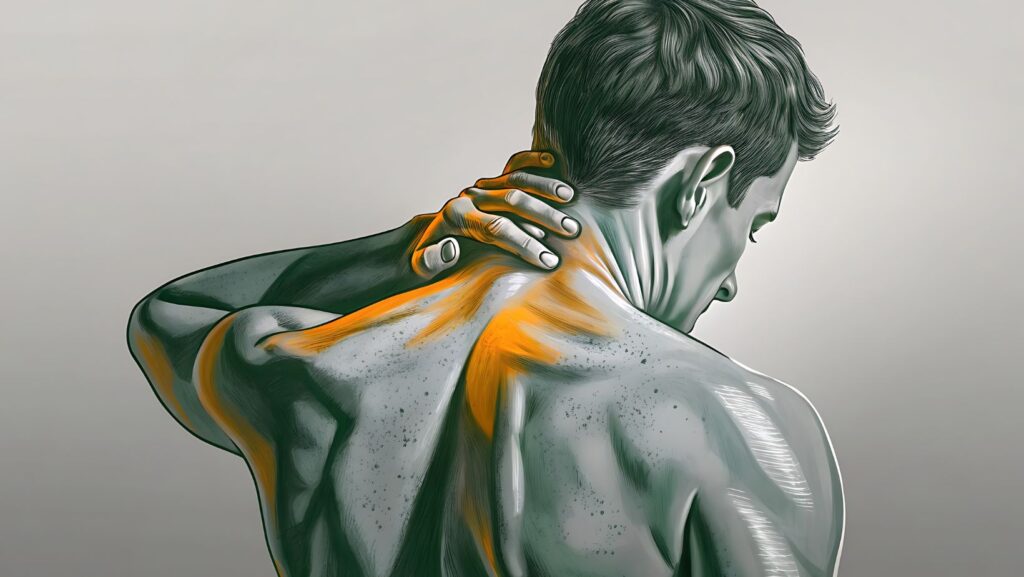As the winter chill sets in and frost begins to lace our windows, many of us eagerly embrace cozy sweaters and hot cups of cocoa. But for some, the season brings a less welcome companion: neck pain. The cold weather can wreak havoc on our bodies, tightening muscles and exacerbating discomfort. Whether it’s from shivering at outdoor events or hunching over while we work from home, winter can be tough on our necks!
Fear not, this blog post is here to guide you through practical strategies and simple tips that will keep your neck healthy and pain-free all season long. Say goodbye to those winter aches and hello to a more enjoyable chilly season! Let’s dive into how you can protect your neck this winter with warmth, movement, and mindful practices.
Why Does Cold Weather Make Neck Pain Worse?
The cold weather affects our bodies in several ways, and many of these can contribute to neck pain. Here are some specific reasons why the winter months may aggravate neck discomfort:
Cold Temperatures Can Cause Muscles to Tighten.
When our bodies are exposed to cold temperatures, our muscles tend to contract in an effort to conserve heat. This tightening can be especially pronounced in our necks, which are already vulnerable to muscle strain and tension. As the muscles in our necks tighten, they can become stiff and sore, leading to pain and discomfort.
Cold Weather Can Reduce Circulation.
The cold weather can also decrease blood flow to our muscles and joints, which can exacerbate neck pain. Reduced circulation means less oxygen and nutrients reach the muscles, leading to fatigue, discomfort, and stiffness.
We Tend to Move Less in The Winter.
It’s natural to want to hibernate when the weather is cold and dreary, but this can have negative effects on our necks. When we spend more time indoors and are less active, our muscles can become weaker and more prone to injury. Additionally, spending long periods of time in one position (such as sitting at a desk) can cause our neck muscles to become tight and strained.
We May Engage in Activities That Strain Our Necks.
Winter activities such as shoveling snow, skiing, and sledding can put a lot of strain on our necks. These activities often involve repetitive motions or awkward positions that can lead to muscle strain and discomfort. Furthermore, the cold weather and neck pain can make our muscles more susceptible to injury, increasing the likelihood of straining or pulling a muscle while engaging in these activities.
Tips for Protecting Your Neck in Cold Weather:
Stay Warm.
The most obvious way to protect your neck in the cold weather is to stay warm! Wear a scarf or neck warmer when you’re outside to keep your neck muscles from tightening. Additionally, make sure to dress in layers and keep your body warm in general. This will help prevent muscle contractions that can lead to neck pain.
Move Regularly.
As mentioned earlier, reduced movement can contribute to neck pain in the winter.

Make an effort to move regularly throughout the day, whether it’s taking a walk or doing some stretching exercises. This will help keep your neck muscles loose and prevent stiffness and discomfort.
Practice Good Posture.
Slouching or hunching over can put a lot of strain on your neck muscles, leading to pain and discomfort. Be mindful of your posture throughout the day, and make an effort to sit and stand up straight. Use an ergonomic chair and adjust your computer screen to eye level to avoid straining your neck while working.
Stay Hydrated.
Drinking enough water is important for maintaining healthy muscles and joints, including those in your neck. In the winter, we may not feel as thirsty as we do in warmer months, but it’s still important to stay hydrated. Aim to drink 8-10 glasses of water per day to keep your muscles and joints functioning properly. 5. Take breaks from winter activities.
Conclusion
While cold weather can aggravate neck pain, there are steps you can take to protect your neck and alleviate discomfort. By staying warm, moving regularly, practicing good posture, staying hydrated, and taking breaks from strenuous winter activities, you can help keep your neck muscles loose and prevent pain and discomfort. If you continue to experience neck pain, it’s important to consult with a doctor or physical therapist for proper treatment and prevention strategies.
